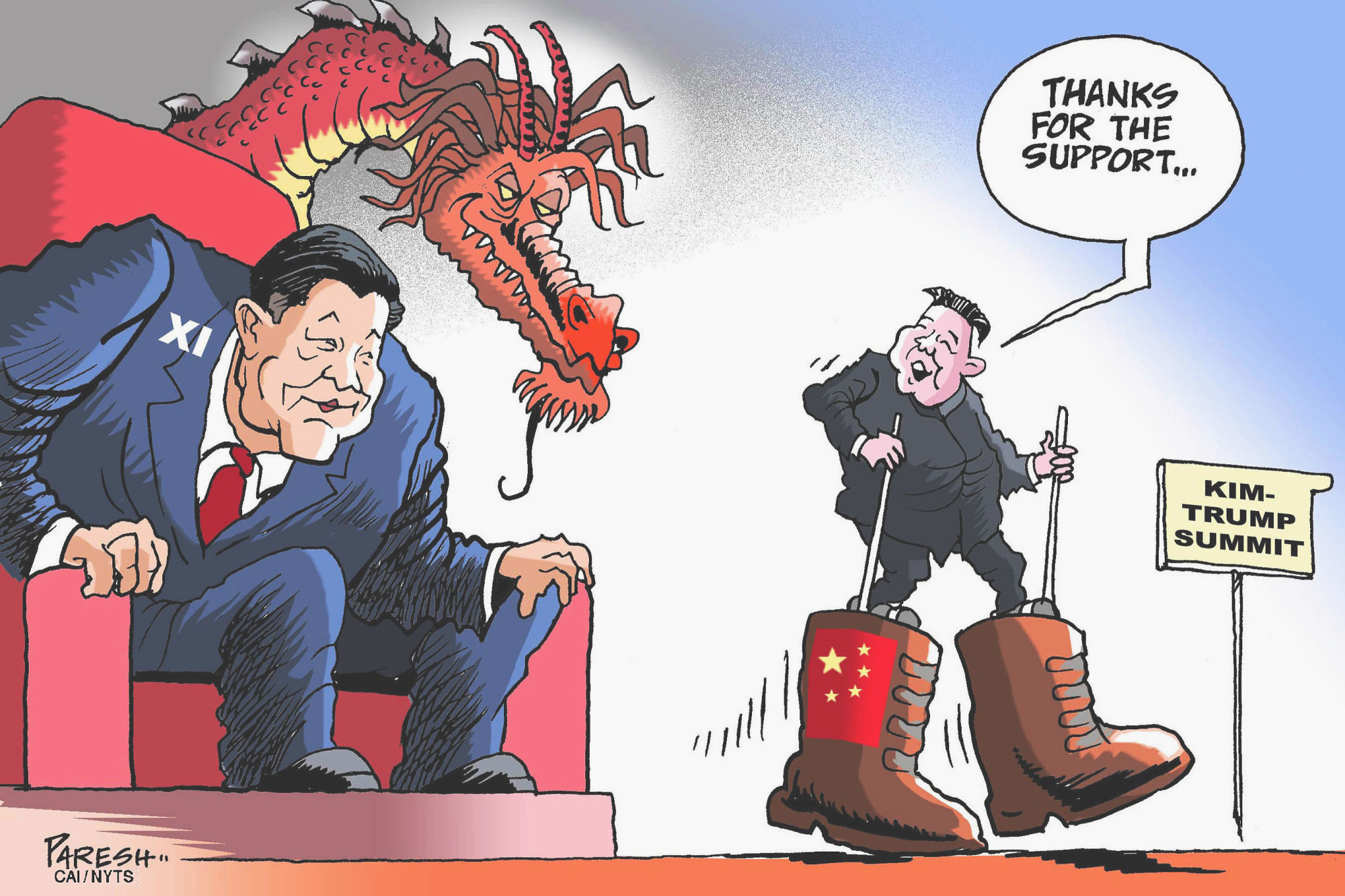North Korean leader Kim Jong Un seems to be setting the stage for a historic deal with U.S. President Donald Trump that would allow his country, like Myanmar and Vietnam, to reduce its dependence on China and move closer to the West. But, despite declaring a moratorium on nuclear and long-range missile tests and dropping the demand that American troops withdraw from South Korea, Kim is unlikely to abandon North Korea's hard-won nuclear-weapons program until a credible and comprehensive agreement is reached.
North Korea has conducted a total of six nuclear tests — the same number as India, whose formidable nuclear-weapons capability is beyond dispute. Kim's emulation of India's 1998 declaration of a test moratorium — which enabled talks with the United States and led eventually to a U.S. law recognizing India's nuclear arsenal — implies that he seeks international acceptance of his country's nuclear status.
Of course, the U.S.-Indian nuclear deal was made possible by post-Cold War strategic pressures, which are lacking in the context of the Korean Peninsula. Nonetheless, if Trump's summit with Kim is to have a lasting impact, it is essential to move beyond simply trying to force North Korea to denuclearize and pursue a broader strategic deal aimed at opening the North to the world.


















With your current subscription plan you can comment on stories. However, before writing your first comment, please create a display name in the Profile section of your subscriber account page.